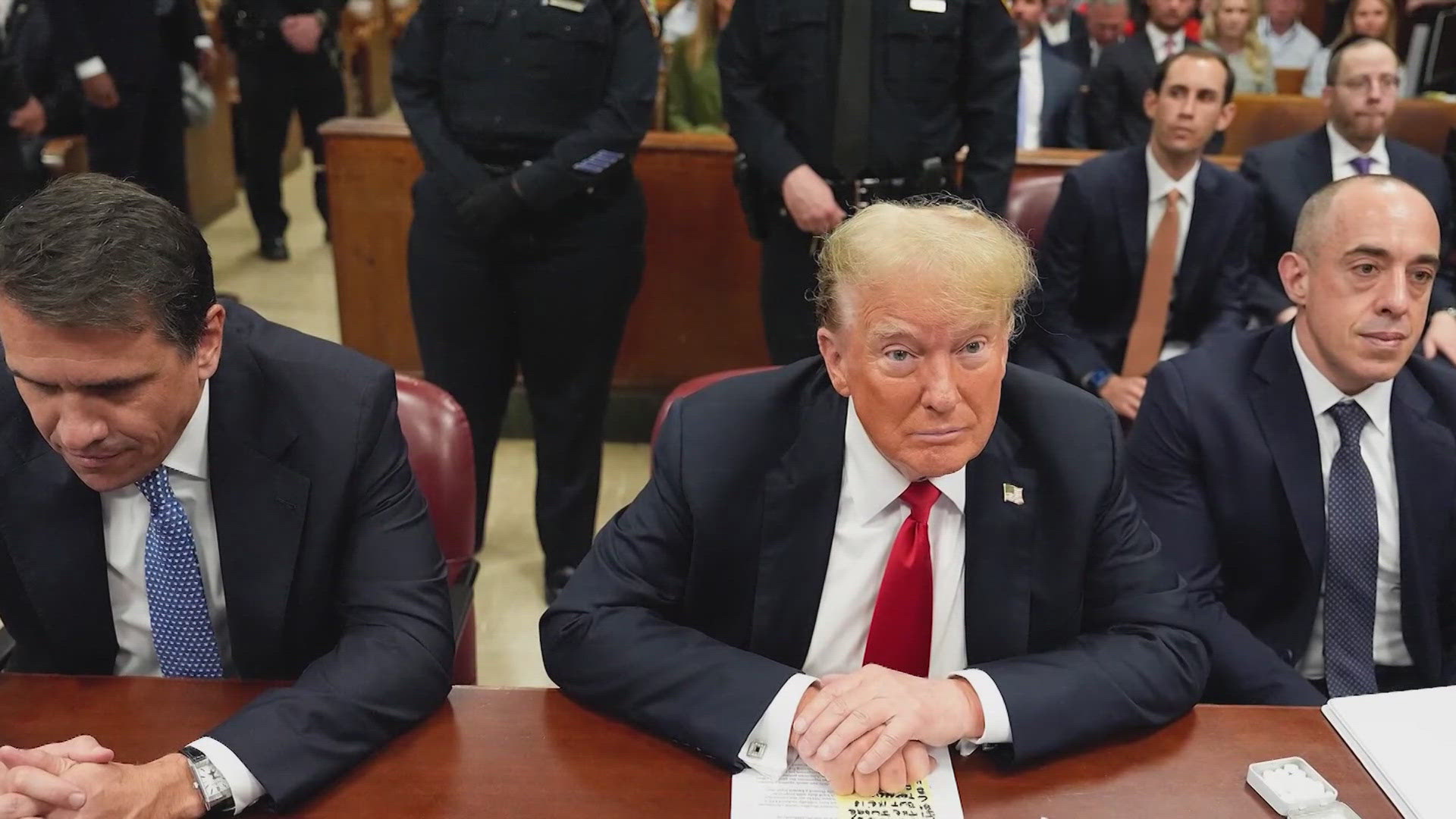USA TODAY - An unscripted comment a year ago put President Obama into a box on Syria. An offhand remark two days ago gave him a way out of it, at least for the moment.
That unexpected turn of events meant the president delivered an address to the nation Tuesday night that wasn't the clarion call to military action he had planned when it was scheduled. Instead, he not only argued that American interests and values justified missile strikes on Syria but also embraced as worth exploring a last-minute pitch from Russia for a diplomatic solution to avoid doing just that.
"After careful deliberation, I determined that it is in the national security interests of the United States to respond to the Assad regime's use of chemical weapons through a targeted military strike," Obama first said. "That's my judgment as commander in chief." But he went on to say that he had asked congressional leaders to postpone a vote on authorizing the use of force until the diplomatic initiative had been pursued.
He didn't mention that he seemed very likely to lose that congressional vote if it had been held as planned in the next few days.
Improbably, the president was rescued from that political setback by Russian President Vladimir Putin, until now such a nemesis that Obama had likened him to a defiant teenager and then canceled their scheduled summit in Moscow this month. At Russia's initiative, the imminent military action Obama had proposed against Syrian President Bashar Assad ? a step opposed by many in Congress and most of the American public ? is now on hold.
While he insisted he could return to the military option if diplomacy stalls, marshaling public support in the future would be an enormous challenge, absent another atrocity by the Syrian regime. And having chosen this time to seek congressional authorization before acting, the presumption is that he would seek it again down the road.
It was hard to avoid the impression that a potential diplomatic solution appeared out of nowhere after the White House had insisted all such diplomatic avenues had been exhausted. A turnaround that Obama's admirers may see as agile was blasted by his critics as conducting foreign policy by accident.
"Apparently, he who gaffes last set foreign policy," Republican strategist Rick Tyler jibed in a tweet.
Historian Robert Dallek, who has studied modern presidents and foreign policy, says the process has been messy but the final result may leave Obama in a better place. "It looks like it kind of fell into his lap," Dallek acknowledged. "It doesn't enhance his standing as a strong, bold, international leader; I don't think it does that. But if he gets a good outcome here, it's going to avoid damage to his standing."
Damage was the direction he had seemed headed in, making no apparent headway in his effort to persuade Congress to back him. In a USA TODAY Network survey updated Tuesday, just 43 senators and representatives supported the authorization he requested.
How did he get in this uncomfortable place?
A year ago, when Obama was trying to explain why the United States wasn't intervening in Syria's bloody civil war, he said in an unscripted comment that the use of chemical weapons by the regime would be "a red line" that would "change my calculus." Last month, when U.S. intelligence agencies concluded that the Syrian regime had used sarin gas in a Damascus suburb, Obama had little choice but to deliver on that promise. Tuesday night, he cited the horrific photos of the bodies of children lined up in a makeshift morgue.
It was also an unplanned comment that provided an exit, at least for now. On Monday in London, Kerry responded to a reporter's question by raising and immediately dismissing the prospect that Syria could avoid a U.S. military strike by turning over its chemical weapons to international inspectors. The Russian foreign minister seized on the first part of his answer and ignored the second to create a diplomatic opening.
In his speech, Obama argued that his policies helped persuade the Syrians to accept the Russian plan. "The last few days we've seen some encouraging signs in part because of the credible threat of U.S. military action as well as constructive talks that I had with President Putin," he said.
There is no shortage of hurdles ahead, starting with whether the Russians and the Syrians are just trying to buy time until the pressure to respond to the sarin attack dissipates. For another, there are questions about whether it's feasible to secure an estimated 1,000 metric tons of chemical weapons that have been hidden in a war zone.
For Obama, too, there are hurdles, including a perception that on this issue has been a reluctant leader who has struggled to convince Congress or the American public to follow him. That's not a helpful image on the world stage or at home, where his calendar in coming weeks is pretty daunting: Battles over financing the government, funding the Affordable Care Act and more.

